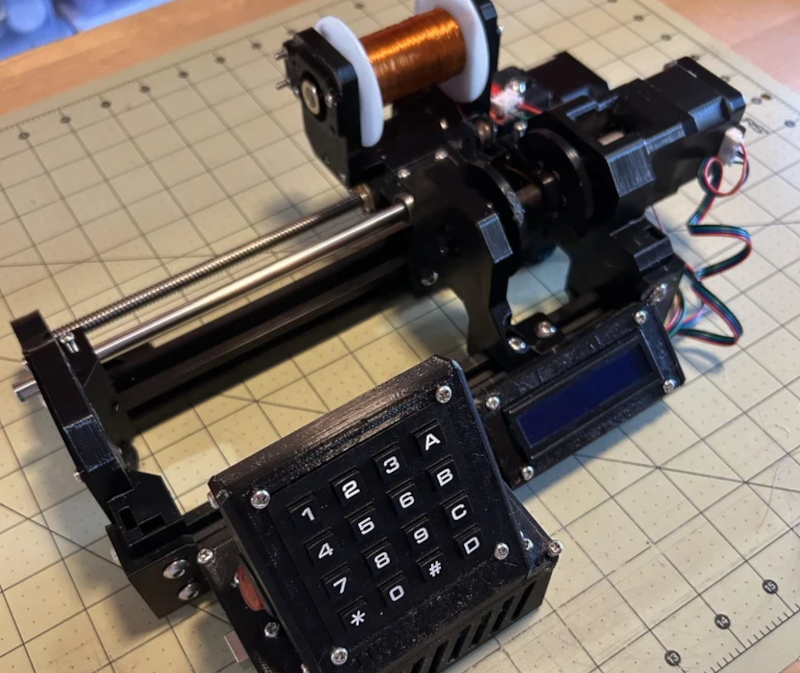If you build electronics, you will eventually need a coil. If you spend any time winding one, you are almost guaranteed to think about building a coil winder. Maybe that’s why so many people do. [Jtacha] did a take on the project, and we were impressed — it looks great.
The device has a keypad and an LCD. You can enter a number of turns or the desired inductance. It also lets you wind at an angle. So it is suitable for RF coils, Tesla coils, or any other reason you need a coil.
There are a number of 3D printed parts, so this doesn’t look like an hour project. Luckily, none of the parts are too large. The main part is 2020 extrusion, and you will need to tap the ends of some of the pieces.
There is a brief and strangely dark video in the post if you want to see the machine in operation. The resulting coil looked good, especially if you compare it to how our hand-wound ones usually look.
While most of the coil winders we see have some type of motor, that’s not a necessity.
















Forget “another” this is a sane and reproducible coil winder. I’ve seen many DIY coil winders and they all seem to rely on far too many commercial components or handmade one-offs. The arduino-based winder seemed nice but they never shared the STL files because it’s all about getting views, not helping others.
Spent a year of my life maintaining Meteor coil-winding machines, back in the mid-’80s. Shear nightmare.
Whatever you do, do not use hot air to melt the wire varnish so the coil welds itself together.
Cleaning that sh!t out of everywhere ain’t nice…
Shear as in “sheared off the surface” ( an intended pun about the bad design, verb), or “sheer” describing the surprise and amazement, an adjective, “unmitigated” ?
A simple but decent design. I like it.
An electrical schematic would be helpful. I know the important connections between the Mega and motor driver boards are documented in the programs/header files, and if I build it, I’ll probably hand-draw a schematic for myself. It’s certainly not complicated. But I’ve no doubt some users might be confused by things like the inclusion of LM7808 regulators in the parts list, yet no mention of how or where to use them; they’re listed incorrectly as “L780SCV”, which are probably supposed to be LM7805. There’s no listing or mention of a power supply for the machine, either.